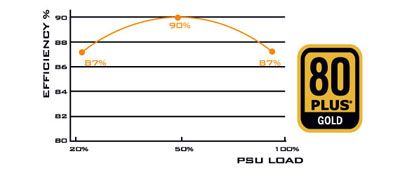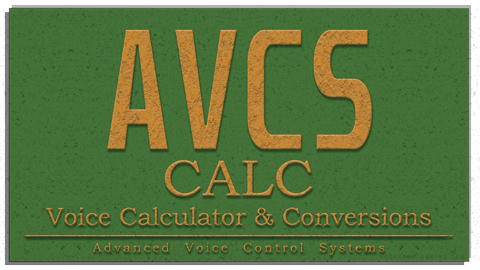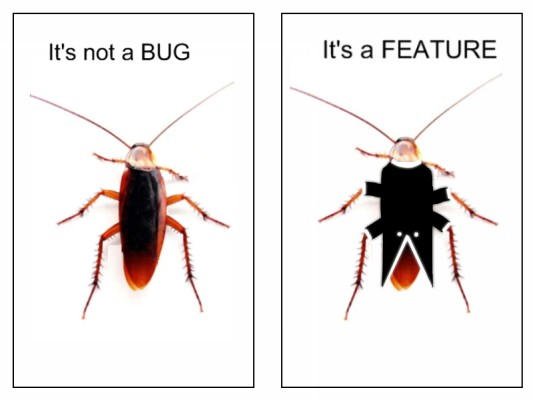-
Posts
4,928 -
Joined
-
Last visited
Content Type
Profiles
Forums
Events
Downloads
Gallery
Articles
AVCS Bug Reports (automated)
AVCS Bug Reports (manual)
VG Wiki
Blogs
Store
Everything posted by =VG= SemlerPDX
-
Should base it off similar systems sold in your area (I did a brief search on Craigslist LA) -- you might want to start around $600 or so, give or take $100 Again, best practice is to use a brand new hard drive (~$50) and install windows/drivers from the CyberPower recovery media that came with that system - if it didn't come with anything, then just installing Windows 10 (and activating it with the Windows Key that came with the old system). https://www.amazon.com/Seagate-BarraCuda-Internal-Drive-3-5-Inch/dp/B07H2RR55Q Very hard to sell a computer that is a couple generations old, and this one is just over two generations old. So, anything over $400 recovered from this old system should be considered lucky. Basically banking on someone who wants an affordable older generation entry level gaming computer in your area. Not always a fast sale, and might have to lower price over the weeks if it doesn't sell and you don't want to keep listing it each week.
-
Colony on Duna maybe?
-
You still do Carbonite? Just make sure everything is fully backed up moving forward with an unstable or misbehaving system. I would hate for you to lose any data over this! That's just tragic when it happens
-
Okay - what I mean is if this is just to test and get a few more days, and then resell this old computer when you buy a new one, then get a cheap replacement like this: https://www.newegg.com/apevia-prestige-series-atx-rp800w/p/N82E16817148079 Otherwise, if you are trying to get more months (or a year) out of this PC, get a good PSU -- but not knowing IF the PSU is the problem is the factor here and could end up throwing good money on parts we are not sure are even the reason. EDIT: Also, if you are selling any old computer, take out the hard drive(s) and buy new cheap replacements, and sell it like that. Never sell a computer with a hard drive in it which you have used.
-
Yes, that is a fine replacement - so long as it's in stock and less than (or around) $80
-
Yea, I think your PSU is dying or dead - inconsistent USB power, funky graphical effects - all that sounds like bad power. also, yea, f best buy - they are the worst. Good for only one of a few things, and that's about it.
-
*You'd have to take the PSU into Best Buy for testing - anything else would likely cost money.
-
Yea, sorry - I wanted to ask if you've had any blackouts or brown-outs in your area lately? We had a few here and I was lucky to catch it and shut everything off real fast - those things can be killers for PSU's, especially older ones That is the funkiest shit I've ever heard of and I'd worry about trying to boot without performing tests on the PSU first... I think Best Buy Geek Squad would do that for free if you played dumb like you were gonna buy a new one from them - they'd test it to see if it's bad/good, and you could leave knowing that was the issue. Otherwise, if you want to save data already on your (now dead) computer, don't power it up until you know it's safe... you can still pull those hard drives and put them in a new computer you buy (if they don't get fried first)
-
it will be. CyberPower will just use whatever they have - Corsair, EVGA - whatever is in stock and matching the stated spec. On that note, I always base my PSU purchases off the PSU Hierarchy for the current year from LTT - here's a link if you'd like to better control the true quality of your PSU, because wattage ratings and name brands unfortunately are not "how" to choose -- you'd want something in the B tier, preferably B+ https://linustechtips.com/topic/1116640-psucultists-psu-tier-list/
-
It would be negligible - a swing of at most 50W I would assume - it is not the overclock that requires this 1000W power supply, but the GFX card. Another consideration for choosing a higher wattage power supply is efficiency, and this does play in more when overclocking, though CyperPower won't be doing anything extreme as mentioned. Here's a basic example from an 80+ Gold PSU - notice that under load, it is most efficient when usage is nearer to 50% of it's rated delivery: This means that if we had a system that took 500W under full load, a 1000W 80+ Gold PSU would deliver around 90% efficiency -- but nearer to 100% load, or 20% load, that efficiency drops off.
-
With respect and courtesy, I strongly disagree. Even with the 80+ Gold certification, a PSU will only deliver around 80% of it's rated output under load. An 850W PSU could be expected to deliver 680W dependably. That is not sufficient for a GFX card which demands a crazy 500W and a CPU that (stock) takes 175W, and that's before the drives and fans and AIO pump and RGB puke (if any). But don't take my word for it - here's a classic vid from JayzTwoCents on the subject, still perfectly relevant today:
-
You did notice the 3080 right? That's a 500W draw right there alone... before the 175W i9 (and subsequent overclocking by the system integrator CyberPower)... putting the power usage closer to 75% is best practice. He's not doing any overclocking - they are.
-
Very cool -- some notes, tho: Ditch the Sound Card (ASUS XONAR AE 7.1 Channel 192kHz/24-bit 110dB SNR PCIe Gaming Sound Card) and the Network Card (Intel EXPI9301CTBLK Network Adapter 10/ 100/ 1000Mbps PCI-Express) For one thing, that Motherboard has a studio quality sound processor already, and a 2.5G integrated network chip that rivals most any add-in card, making both of these items redundant and a waste of money. On top of that, they would take up PCIe slots which would force the speed of the slot your awesome Nvidia RTX 3080 is in to an 8x mode as opposed to a 16x mode (a very minor thing, barely applicable but worth noting, it's not "double the performance", just best practices) Finally, unless that Mouse is free with this system, same with the keyboard, ditch them to save a small amount of money -- if you're looking to get a mouse, check out the Logitech G502* (or it's wireless cousin G502 Lightspeed - just don't buy the lame overpriced wireless Lightspeed charging pad, takes less than 2 hours to charge via cord, and lasts for a week or more on one charge) *if you do need a new wired gaming mouse, I happen to have a new-in-box (never opened) Logitech G502 that I bought for like $40 when I thought mine was going out, but it stopped messing up, and a year later I bought the wireless G502 Lightspeed so just got this new wired G502 sitting around. Let me know if you're interested.
-
Version 1.1
2,199 downloads
Profile for VoiceAttack by =VG= SemlerPDX Currently Supported Operations: 'Squared' - 'Cubed' - Exponents - Square Root Addition - Subtraction - Division - Multiplication Percentages - Pi (word substituted for Pi to 14 decimal places) Currently Supported Conversions (to and from): Velocity === Feet per Second - Meters Per Second - Knots - Miles Per Hour - Kilometers Per Hour - Mach Length === Inches - Centimeters - Feet - Meters - Yards - Miles - Kilometers Temperature === Fahrenheit - Celsius/Centigrade - Kelvin --To use the Calculator, say, "Turn On Calculator" (or many natural variations of this, like "Start Calculating") --To stop using the Calculator, say, "Turn Off Calculator" (or, again, many variations, like "Stop Calculations") NOTE: When Calculator is OFF, even when a potential calculation command IS recognized, the command will immediately exit. Learn more about VoiceAttack here: https://voiceattack.com/ DESCRIPTION: Calculate up to two operations with up to three values, or a single conversion. So far, I have added some simple conversions for velocity, length, and temperature. Wildcard voice recognition uses asterisks "*" around the functional operator words to catch any spoken phrase which contains any of these words. As a result, it is meant to be turned ON when needed, and OFF when not, by use of the commands "Turn On/Off Calculator" (or many included variations, like "Start Calculating" or "Stop Calculations"). Currently, this calculator requires the user to be aware of their own order of operations, but will try to catch many known issues and correct them, such as "What is four subtracted from twelve?", where "12" is actually the first number. The operation (as interpreted) is always printed out in the VoiceAttack Event Log and the result spoken, if successful. It is also stored to memory by the name "Value" followed the number shown in the log. This allows use of that number or recalling that number at any time. The last result of any valid equation is stored in the word "that", and can immediately be used in the next calculation, and any previous value can be recalled to become the word "that". Previous results can all be referred to by their "Value" number from the results log, in natural speech, for a new equation such as, "Divide that by Value 14". The full calculation history can be requested at any time, listed in the VoiceAttack Event Log, or cleared - this is also cleared anytime the VoiceAttack program is restarted. Up to 99 previous equations and their results are stored before rolling over and over-writing starting back at Value 1. Decimal Places can be set (default 3) from 0 to 16, and will be saved and recalled between VoiceAttack sessions (saved to profile). A small Profile Update Check is performed once per session, when Calculator Mode is first turned on, and this checks a single decimal number on a blank htm page here on this secure website. Users can delete this action as noted in the Main calculations command, if undesired, but this will make a small note in the VoiceAttack Event Log if the profile is updated, just to let you know of any improvements, bug fixes, or changes. I plan to add on more conversions and maybe even special operations in the future, but for now, everything is working so well, I figured I'd release this first version for the public right away. FINAL NOTE: This profile makes use of VoiceAttack "Wildcard" commands, and here they are used to catch ANY speech which contains one of the Maths or Conversions operator keywords, and so it is possible for these commands to fire at undesired times. Always use the command to Turn OFF the Calculator when not in use. There are 4 options for how to make use of this profile. You can just switch to this profile when needed, and say, "Start Calculating", or you can include or import commands into other profiles. =============== OPTIONAL WAYS TO USE THIS PROFILE =============== OPTION 1: Switch to the AVCS Calculator Profile and say, "Start Calculations" to use OPTION 2: Open Profile Options for any of your Profiles, select Include Commands from other profile: "AVCS Voice Calculator (latest version)" -or- OPTION 2b: Open VoiceAttack Options and select Global profiles, then Include Profile Commands from the profile: "AVCS Voice Calculator (latest version)" OPTION 3: Switch to any of your other Profiles, and edit that profile - select "Import Commands" and find/select the AVCS CALC profile (ending in ".vap"), and import ALL Commands -or- OPTION 3b: Open the AVCS CALC profile, and select each command, right click and "Copy To" any profile. OPTION 4: Same as 3/3b above, BUT you ONLY Import the "Turn ON/OFF Calculator Master Mode" command* *Using OPTION 4, using "Turn On Calculations" (or any variation) will switch to and from this Calculator Profile as needed. This is the most strict way to deny calculation commands getting infrequently recognized (but exiting anyway) when Calculator Mode is OFF ========================================================= The main calculation command is almost entirely an Inline Function in VB.net - feel free to review this script here: AVCS Voice Calculator & Unit Conversions Inline Function in VB.net for VoiceAttack edited: typos, options- 1 comment
-
- 1
-

-
- voice control
- voiceattack
-
(and 3 more)
Tagged with:
-
Version 1.2
2,410 downloads
====================================================== X52 Pro - Falconeer v1 HOTAS Joystick Profile -- for Falcon BMS 4.35 (keyfiles for X52 Pro and/or Thrustmaster MFDs & Razer Keypad as ICP ) by SemlerPDX Jan2021 VETERANS-GAMING.COM ====================================================== KEY FEATURES: Shift-States will not interfere with certain important HOTAS buttons, such as Weapon Release/Pickle, Comms HAT, Slap Switch, and TRIM Reset. Easy autopilot override with "right-hand clutch" -- holding pinky then holding trigger (full, both trigger buttons) will disengage autopilot until released Throttle "Mouse" Wheel allows easy 3D pan-cockpit alternate 'lookdown' views via subsequent rolling, and easily back to normal via one-back roll and forward again. Speed Brake is variable, and stops movement when Throttle Slider is in center deadzone, and the MODE Roller makes a great DGFT/Clear/MRM mode selector. Most dangerous actions are on Toggles & Throttle Shifted state (holding down pinky), including "Landing Gear Down" actions -- "Gear Up" as an unshifted button. OPTIONAL FEATURES: Blank Layout Graphic and .psd for editing Alternate keyfiles included for use with Thrustmaster Cougar MFDs, or a Razer Tartarus gaming keypad as an ICP, or all three together with the X52 Pro. INSTRUCTIONS: *(images below may reflect earlier version or previous naming scheme, but methods are still accurate) (click here to show/hide) -- STEP 1 -- Copy the .key file from the download for the setup you are using into the Falcon BMS 4.35 User Config folder alongside the other keyfiles as shown. While here, we can edit the DeviceSorting.txt file to save the order of devices so these keyfiles always work correctly. -- STEP 2 -- Edit your own "DeviceSorting.txt" file found under your BMS Programs folder, inside the Config folder next to the Falconeer .key file you placed there. For the "X52 Pro Falconeer v1 HOTAS.key" standard version, you only need to ensure that the top device in this list is your X52 Pro and save. If you are using one of the optional keyfiles included in the 'extras' folder, follow the example included with each keyfile, your X52 Pro may have a different name than the one in the example. Re-arrange your DeviceSorting file to match the example, and then save. -- STEP 3 -- Right-Click the "DeviceSorting.txt" file and select 'Properties', and then check the box for 'Read only', and hit OK. This will ensure your devices remain in the proper order even if unplugged. Follow this procedure in reverse to allow recognition of new controllers, just remember to manually reset the order as shown here, and then reset it to 'Read only' again. -- STEP 4 -- Open Windows Control Panel > Hardware and Sound > Devices and Printer, find your X52 Pro and Right Click the Icon, select 'Game controller settings', then select your X52 Pro and click Properties. Next, click on the MFD tab and UNCHECK the box next to 'Enable Clutch Mode' - then click Apply. -- STEP 5 -- Under the Deadzones tab, set large (approx. 60%) deadzones for the "Slider", the "Mouse X", and the "Mouse Y" axes. This is a good time to wiggle other controls and set deadzones for any axes that are beyond any latent 'wiggle' when you are not touching anything, if you haven't already. -- STEP 6 -- Place the "BMS X52 Pro Falconeer.pr0" file in your Saitek (or Logitech) profiles folder. You may need to refer to the user manual for your version of X52 Pro, or search for existing profiles by name to locate this folder. -- STEP 7 -- Set this as the Active Profile via the Taskbar Icon (right click it) to enable the Throttle "Mouse" Mini-stick as Bands for the Radar Cursor, and for the Analog Slider as the variable SPD Brake controls. -- STEP 8 -- Load the keyfile you are using in BMS under Setup > Controllers (you only load one, whichever corresponds to the setup you are using). (*never hit the 'SAVE' button! this will wipe notes and comments from a keyfile!) !! FINAL NOTE: The mini-stick actuates the arrow keys (up/down/left/right) and the slider actuates the "B" key and "PageUp" keys, when not in the middle deadzone area. Because the slider can be 'left' in a forward or backwards position, it can be 'holding' down a keyboard key which can interfere with standard Windows operations when not in Falcon BMS. Always disable this Active Profile when not using the X52 Pro for BMS, and always return the slider to center when not in use for speed brake control in BMS! --------------------------------------------------- --- OPTIONAL --- Razer Tartarus as F-16 ICP Open Razer Synapse and click on the "..." button - select "Import" and point to the .RazerSynapse profile included in the the "X52 Pro + Razer" folder. -- FINAL STEPS -- Choose 'Falconeer_Razer_ICP' from the list. This is essentially a completely disabled profile, each button is empty so that BMS can use them as DirectX buttons only. Be sure to load the correct X52 Pro + ICP keyfile in Falcon BMS Setup, and set the Razer as the second device in the list in your DeviceSorting.txt file (see included readme). --------------------------------------------------- ~extras~ (click here to show/hide) ========================================================== X52 Pro - Falconeer v1 Layout Graphic Editor for Photoshop download .psd file: https://veterans-gaming.com/index.php?/forums/forum/317-x52_pro_photoshop_falconeer_template_editor_psdzip/ Complete notes and comments in keyfiles for user editing, as well as a Custom Falconeer Profile template graphic editor for Photoshop (.psd) - plus a blank X52 Pro template in .png below X52 Pro - Falconeer v1 Blank Layout Graphic Template for user Editing ========================================================== X52 Pro - Button Layout Graphic Editor for Photoshop download .psd file: https://veterans-gaming.com/index.php?/forums/forum/317-x52_pro_photoshop_falconeer_template_editor_psdzip/ Template builder for Photoshop (.psd) with all text box layers labeled for easy editing - just double-click the [T] next to the button layer name. A blank X52 Pro template in .png below for anyone who can't make use of the .psd: -
Welcome back! Finally getting more free time myself, getting all my controls set up again, and hoping to be on the server more regularly in 2021. See you at Angels 20!
-
California - by Led Zepplin (followed very closely by Classical Gas -- Tommy Emmanuel version) ...oh crap, that's against the rules isn't it?
-
Gee, I don't know silent... it's really hard to say why on Earth you could be getting kicked every time you try to join our server in PR CO-OP Obviously, my first guess is that it has something to do with this:
-
-
You were banned. If you wish to be unbanned, you can fill out an Unban Request Form as I have told you more than once already.
-
Hold middle-mouse button (or mousewheel button) and move the mouse
-

Airlift & AirToAir Rearm/Repair, Your Thoughts?
=VG= SemlerPDX replied to =VG= XOR's topic in Project Reality
First idea seems neat (though not the part about typing out a console command), but as for air-to-air reloading of CAS, I gotta agree with TEDF on that one. CAS is way too OP already (and talking COOP here, not Deployment) where adding this extremely unrealistic and rather arcade video-gamey air-to-air rearm/repair would drastically change the balance of combined arms operations gameplay is it currently exists in PR (INF/ARMOR/TRANS/CAS) IMHO. But above all, if any of these sorts of ideas are on the table for integration, they should at all costs be key commands and not involve typing - even if using something like AutoHotKey was required. Just my opinion here, but the concept of typing out game actions makes me think of the days before 'graphics' - talking IBM x86 era. Just sayin. An event with special functions would certainly be the best place to try out something like this, and we're always down to host an event if someone puts in the time and effort to be it's 'show runner' as TEDF and others have done in the past. That's how it works around here - but it's gotta be playable, and testing should be done prior to any event for stability and playability. You got some creative ideas, and some that are odd to some of us, but thank you for taking our constructive criticism with tact and grace, and understanding. -
If it's only gonna be like 5 or 10 of us, we can just do something specific - like a Tank v. Tank minigame, or whatever we want -- we don't necessarily need a full server to hop on and have some fun... who knows, maybe we'll get some public people joining and actually end up playing proper. If not, we can just think up some small game and a designated section of the AO to play in... King of the Hill using a building, or a little vehicle warfare, etc. I'm down for whatever - if we don't do it today, there's always next weekend.
-
All VG PR COOP Servers have been updated to 1.6.4.1
-
*every forum that has a bbcode conversion, which we do. Thanks! Thought it was something different you were doing.






